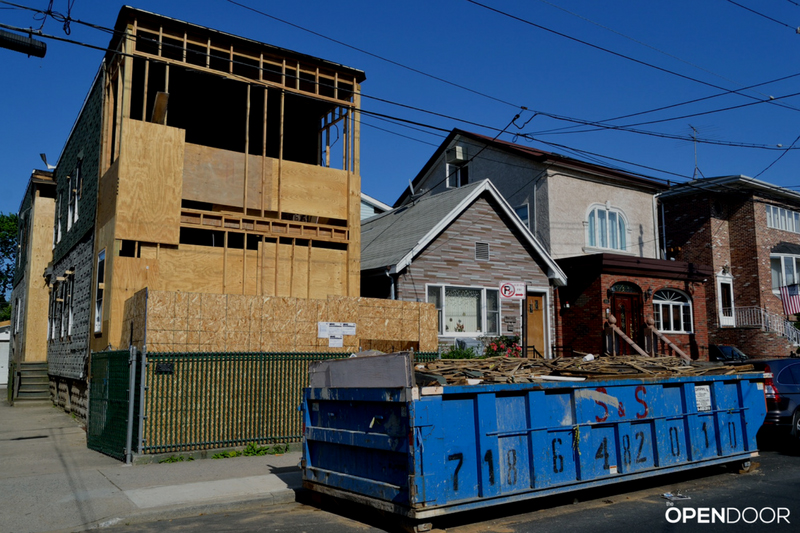When you’re thinking about building a new house, it’s tempting to start flipping through home magazines, doodling floor plans on napkins, and calling designers or contractors in the area. But don’t make the mistake of jumping the gun too soon. Rushing into a project without understanding some fundamental things is detrimental to the success of the project, and worse yet… costly.
Major house projects can be complex and overwhelming. But the more knowledgeable and prepared you are ahead of time, the less stressful and time consuming the process will be – AND the better your chances are of a successful project.
A house is a big investment. You want to do everything you can to get it right and avoid all those unnecessary costs down the road. Right? So, follow along as we go through these essential things before anything else takes place.
Here, let’s get ready…
The key to starting off on the right foot is knowing these essential things: Understand what’s important, prepare yourself for the process, and plan your journey ahead.
Before Getting Started: Understand Your ‘Why’ & Set Project Goals
Before you embark on your exciting journey, it’s important to explore your options and understand ‘WHY’ you want to pursue this project in the first place. Understanding your ‘why’ – your purpose for the project – will help you define project goals. Project goals motivate you and keep you going when times get tough. They guide you through the entire design and construction process. And, they inform decisions along the way, reminding you of the initial vision you set out to achieve. With them, you increase the likelihood of a meaningful and successful project.
When exploring your ‘why’, remember to explore your aversion to other project types. Would you get the results and meet your goals if you bought a house instead of building? Would renovating your existing house meet your project goals instead of building anew? Would building a spec house work just as well for you as building a custom home?
Understanding your ‘why’, your project goals, and your reasons for wanting one project type over another are the fundamental elements that when considered early on can drastically help build your confidence right out of the gate. Once you explore these ideas, you’ll have set a solid foundation (no pun intended) upon which to create a successful project.
Prepare Yourself: Learn About the Process & Your Commitment Levels
After you confirm that building a new house is right for you, learn about and understand the design & construction process (or at least get a basic understanding of the process).
Here’s a quick breakdown of the typical process:
- Brainstorm (Create a design brief, understand your style preferences, collect design inspiration)
- Find & Acquire Land (Determine your site location and secure land financing)
- Pre-Design (Analyze existing site & building conditions, review codes, get a survey)
- Design (Create a design for your home that meets your project goals)
- Financing, Approvals & Permitting (Get zoning/planning approvals, building permit, secure construction financing)
- Award Construction Contract (Understand various types of construction contracts, find a suitable builder)
- Note: This activity sometimes occurs earlier in the process depending on which project delivery method you choose.
- Construction (Understand the construction process, track progress, and visit the site frequently)
- Project Completion (Certificate of Occupancy, project handover, move-in)
- Post-Occupancy (Post-occupancy reviews, 1-yr correction period)
As you learn about the process, start to think about your commitment level, both in time and money.
In terms of time: Figure out if you can spend a few hours OR many hours per week on the project. Knowing your time commitment starts to indicate how involved you can be throughout the process. It starts to tell you whether you should work with an architect or designer who can handle most of the design, detail work, and product research for you or if you’d like to (and have the time to) do a lot of the work yourself.
In terms of money: Determine how much you want to spend on your project. Understand what you can and can’t afford. This will help you make educated decisions throughout the process and save you the headache and stress of going over budget down the road.
Also, learn what to expect of yourself and others and what your roles and responsibilities are. Make decisions in a timely manner, provide accurate information, communicate often, pay on time, have a realistic idea of the timeframe, manage your stress, be patient, and HAVE FUN! Most of this is common sense, but in the heat of the moment you’d be surprised how must you forget.
Learn: How To Make Your Dream Home a Reality & Who Will Help
Once you prepare yourself for the process, it’s also a good idea to learn a little about the logistics of making it all come together – the execution. Learn about the various project delivery methods (design-bid-build, design-negotiate-build, design-build, owner-build) and choose the one that suits you and your project.
When you decided to create this project, you made the conscious decision that nothing on the market met your needs and wants. This also tells you that design is important to you. But you need to decide HOW important it is to you, what your design needs are, and who you’d like to work with to create your home.
Will you work with an architect, a designer, a draftsperson, a builder, a stock plan, or just do it yourself? Your decision will depend on many factors including: how important the design is to you, how complicated your project is, where your project is, and how confident you are in your own capacities. It’s up to you whom you work with (and sometimes the building department). Choose wisely because your decision will forever affect the overall design, budget, and appearance of your home.

We’d love to hear from YOU!
This post includes many of the things learned over the years from clients, research and, experience. There are undoubtedly other things not on this list to know before you embark on your journey, but these are the major ones.
We welcome your input about your own experience or any questions or comments you have.










